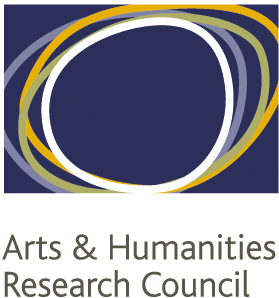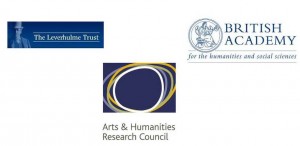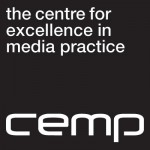 On January 20, 2014 Bournemouth University played host to a lunchtime visit from the AHRC. The funding advice seminar covered general information about the Arts & Humanities Research Council, as well as tips and advice on AHRC bid writing here at from BU. In the lead up to the AHRC visit, the BU Research Blog offered a great round up of key facts and figures. Reiterated at the event were the AHRC’s commitments to:
On January 20, 2014 Bournemouth University played host to a lunchtime visit from the AHRC. The funding advice seminar covered general information about the Arts & Humanities Research Council, as well as tips and advice on AHRC bid writing here at from BU. In the lead up to the AHRC visit, the BU Research Blog offered a great round up of key facts and figures. Reiterated at the event were the AHRC’s commitments to:
- Influence public policy
- Engage with the creative economy
- Impact internationally
- Increase their profile with public
The AHRC offers research grants, fellowship grants, network grants and a special international stream. Across all funding lines, international collaboration was stressed, as were innovation, interdisciplinary work and making a clear case that your planned output matches the target audience for your research agenda.
Our AHRC visitors also highlighted their focus on developing management and leadership skills for Early Career Researchers. If you are out of your PhD for less than 8 years or in an academic post for less than 6 years, you are eligible to apply for their ECR streams. While ECRs go through the same grant process, the success rate is higher, as the ‘bar’ for a fundable project rests below their standard streams.
The Pivotal Peer Review
The AHRC reps also gave valuable insight on the evaluation process. Every proposal is ranked on a 1-6 scale by a group of up to four peer reviewers, selected from their list of 1,000 senior academics. If your proposal includes technical components, such as developing a digital archive, it will additionally be reviewed by someone who knows the technologies you’re engaging.
If your proposal scores a 4 our higher by the majority of reviewers, you’ll make the second round. Here you’ll have a chance to respond to reviewer feedback and clarification questions. “Don’t underestimate the importance of this response,” we were told. The clarity and directness of your PI response can make your application a success.
Also illuminating the evaluation process, the reps from AHRC attempted to demystify the term “impact.” In recent years the notion of ‘impact’ has caused much controversy – especially in the arts and humanities. “Impact is not just economic,” they assured us. Influencing quality of life, public service, policy and creative output also count as impact. To figure out how to articulate the impact of your research, they advised us to “simply ask yourself who, what and how” people benefit from your research.
The AHRC reps also said to keep an eye out for highlight notices that feature key strategic research themes. These themes–currently, Care for the Future, Digital Transformations, Science in Culture, and Translating Cultures—are intentionally broad and intended to offer space for a wide range of research subjects and activities.
Improving our Bids at BU
Bringing their advice home, to end the seminar, the AHRC reps offered some excellent tips for improving our bid writing here at BU.
- BU has 9 AHRC reviewers, let’s take advantage of their expertise and experience.
- The BU research blog is full of grant writing advice and info on the grants academy
- Our BU research office offers an internal review process, use it!
- Check out the peer review college section of the AHRC website.
- Give yourself 3 months to develop your bid from research to writing to final edits.
- Don’t be too repetitive in the bid and watch your spelling!
- Make sure your methods of dissemination are appropriate for your stakeholders.
- The reviewers love to see clear timescales and ‘value for money‘
- Always ask yourself: Is this the best way to do this research?
- If you get to the PI response round, it is crucial and can move up your overall ranking.
- Remember, it’s not just about having a great proposal, you’re in a big pool competing against other really good research.
Added to this are a couple reflections I had from my perspective as an Early Career lecturer in the Media School, a CEMP fellow and Fusion Fund committee member:
- ‘Rise-Up Collaborations’ – Early Career Researchers can pair with senior academics as CIs for the AHRC’s various ECR strands. As emergent researchers, we are often scared of the ‘big bids’ and tempted to stay small or follow professors onto their large-scale research projects. The in-built collaborative nature of the AHRC ECR routes are a great opportunity to push forward with our own initiatives and lead a team, supported by more experienced CIs.
- ‘The Three I’s’ – International, Interdisciplinary and Innovative research tops the agenda of the AHRC. This means great opportunities to be thinking about projects both across Schools at BU and with international university’s we have MoUs and Erasmus partnerships with. These ‘three Is’ are also embedded in Fusion. Pump-priming SMN Fusion Grants could be a great place to initiate the early stages of an AHRC bid for those of us in the arts and humanities seeking to expand our research horizons.

























 Beyond Academia: Exploring Career Options for Early Career Researchers – Online Workshop
Beyond Academia: Exploring Career Options for Early Career Researchers – Online Workshop UKCGE Recognised Research Supervision Programme: Deadline Approaching
UKCGE Recognised Research Supervision Programme: Deadline Approaching SPROUT: From Sustainable Research to Sustainable Research Lives
SPROUT: From Sustainable Research to Sustainable Research Lives BRIAN upgrade and new look
BRIAN upgrade and new look Seeing the fruits of your labour in Bangladesh
Seeing the fruits of your labour in Bangladesh ECR Funding Open Call: Research Culture & Community Grant – Apply now
ECR Funding Open Call: Research Culture & Community Grant – Apply now ECR Funding Open Call: Research Culture & Community Grant – Application Deadline Friday 12 December
ECR Funding Open Call: Research Culture & Community Grant – Application Deadline Friday 12 December MSCA Postdoctoral Fellowships 2025 Call
MSCA Postdoctoral Fellowships 2025 Call ERC Advanced Grant 2025 Webinar
ERC Advanced Grant 2025 Webinar Update on UKRO services
Update on UKRO services European research project exploring use of ‘virtual twins’ to better manage metabolic associated fatty liver disease
European research project exploring use of ‘virtual twins’ to better manage metabolic associated fatty liver disease